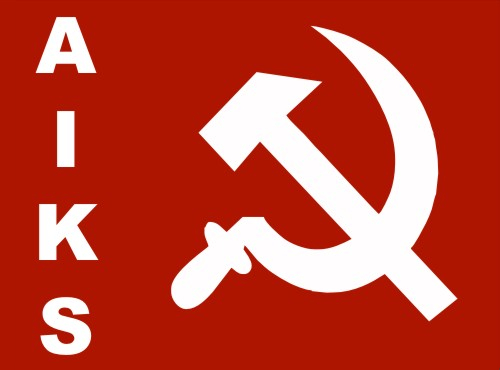No Implementation of Gadgil Report Without Addressing People’s Concerns
June 2, 2014
Media reports suggest that the BJP Government is going ahead with the implementation of the Recommendations of the Madhav Gadgil led Western Ghat Ecological Expert Panel. AIKS cautions the Government against rushing through its implementation without addressing serious concerns in the minds of the people in the Western Ghats. BJP’s communal prejudice against the settler communities in Kerala should not be allowed to dictate the Government policy on such a sensitive matter affecting millions of people across 6 States. It is also noteworthy that in the just concluded Lok Sabha elections the WGEEP and HLWG Recommendations were a matter of contention and intense debate in Kerala and an Independent candidate who articulated the concerns of the people of Western Ghats emerged victorious in the constituency that saw the most intense debate on the matter. Implementing any such proposals hastily will be construed as a willful violation of the opinion of the people. AIKS demands that a scientific assessment by a broad-based Committee of social scientists, environmental experts, organisations of the peasantry and with adequate representation of the varied political opinions from the affected States be set up to look into the matter. Broad based consultations and public hearings with the people and all stake-holders must be held before arriving at a Comprehensive Plan for Protection of Fragile Ecosystems and Livelihoods.
AIKS strongly believes that the fragile ecosystem in the Western Ghats as well as other parts of India needs to be protected for the present and for posterity. Illegal and indiscriminate mining, quarrying, poaching and felling of trees should be effectively countered with strong deterrent action. However, these regions have for generations been home to millions of Tribals, Other Traditional Forest Dwellers as well as settlers who have been living as well as earning their livelihoods from agricultural as well as allied activities in this region. In some areas there are victims of multiple displacements who have been rehabilitated in these regions as part of a Government policy. There are also many Tribes on the brink of extinction in these regions. These sections have serious concerns and misgivings about the possible impact of the WGEEP as well as HLWG Recommendations.
In the context of the two Reports having contradictory recommendations, unilaterally choosing one over the other has only led to pitting precarious human livelihoods in the region against the ecological sensitive nature of the region as though people who have lived for generations in the region are willful destroyers of the fragile ecosystem. The Reports ignore the fact that the people in these regions have been the most effective conservators and have coexisted with as well as actively protected the wildlife and biodiversity of the region. The Reports are at best a bureaucratic exercise without any democratic approach and is also not grounded on scientific assessment of the human-environment relationship in the region. The Government should understand that the support and conscious intervention of the local peasantry and local people are crucial for the protection of Western Ghats.
Thousands of villages in six States would be demarcated as Ecologically Sensitive Zones (ESZ) and agricultural as well as basic developmental activities would be restricted. The recommendations of the WGEEP on land use in the ESZ prohibiting use of land, for any purpose except for extension of village settlements for increasing populations, will restrict even facilitation of basic amenities like hospitals and schools to the people of this most backward region. This is not at all acceptable. Restriction of agricultural activities by banning monoculture plantation which may include coffee, prohibiting chemical fertilisers, mandatory organic farming etc. are unacceptable.
AIKS rejects the approach of considering the environmental question demarcating it from humanity and civilization. Environmentally sound development cannot prohibit livelihood and economic options for the people of the region. In its recommendations, the WGEEP Report failed to address the socio-economic aspects of the issue. Both the Reports did not study the impact of the degradation of environment in the life of various social sections. They failed to suggest fruitful solutions to protect life and crops of peasants by solving the human-animal conflicts, to conserve flora and fauna in protected area, and preserve paddy fields and water bodies in the entire Western Ghats.
The doubts and insecurities in the minds of people of the region have been created by the State and Central Governments and effective steps have to be taken to reassure the millions of people that their livelihood security will be ensured and genuine developmental activities in their habitats will be promoted. AIKS also demands that the Government set up a Fragile Ecosystems and People’s Livelihoods Protection Fund which will ensure that steps for protection of environment and promotion of awareness in the region as well as to create livelihood opportunities for the people will be undertaken.
AIKS calls upon its units and all democratic minded organisations as well as individuals with genuine concern for the Fragile Ecosystem and People’s Livelihoods in the Western Ghat region to unite and resist any attempt to undemocratically impose any recommendations which will have a bearing on generations to come without consent of the people. AIKS will actively involve itself in any democratic process to arrive at a consensus on a Comprehensive Plan for Protection of Fragile Ecosystems and Livelihoods through widest possible consultation with the people of the Western Ghats region.
Sd/- Amra Ram, President
Hannan Mollah, General Secretary


